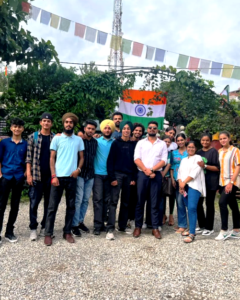Question – Some people believe that it is good to share as much information as possible in scientific research, business and the academic world. Others believe that some information is too important or too valuable to be shared freely.
Discuss both these views and give your own opinion. Give reasons for your answer and include any relevant examples from your own knowledge or experience. Write at least 250 words.
In the realms of scientific research, business, and academia, the debate over the extent to which information should be shared has been a longstanding issue. Some advocate for maximum transparency, arguing that widespread sharing fosters innovation and collaboration, while others contend that certain information, deemed too crucial or valuable, should be guarded. Striking a balance between these perspectives is essential for fostering progress without compromising critical knowledge.
Those in favor of unrestricted information sharing argue that openness accelerates progress and innovation. In scientific research, the free exchange of findings allows researchers to build upon each other’s work, advancing collective knowledge. In the business world, transparent communication can enhance competition and market dynamics, leading to more robust industries. Similarly, academia thrives on shared insights, with open access to information fostering a rich academic environment.
On the contrary, proponents of restricted information sharing emphasize the importance of safeguarding critical data. In certain scientific research, proprietary information might be central to breakthroughs, and premature disclosure could hinder potential advancements. In business, protecting trade secrets and intellectual property is paramount for maintaining a competitive edge. Likewise, in academia, not all knowledge may be suitable for unrestricted dissemination, particularly when considering ethical or security concerns.
The optimal approach lies in finding a middle ground. Encouraging openness in less sensitive areas of scientific research, business, and academia can stimulate collaboration and innovation. Simultaneously, implementing safeguards to protect truly valuable or sensitive information ensures that certain crucial aspects remain protected. A nuanced approach to information sharing allows for progress while preserving the integrity of valuable knowledge.
In conclusion, the debate over information sharing in scientific research, business, and academia reflects a tension between openness and protection. Striking the right balance is essential to harness the benefits of collaboration and innovation while safeguarding critical information that may be too valuable to share freely. A thoughtful and measured approach is crucial for the continued advancement of these fields.








